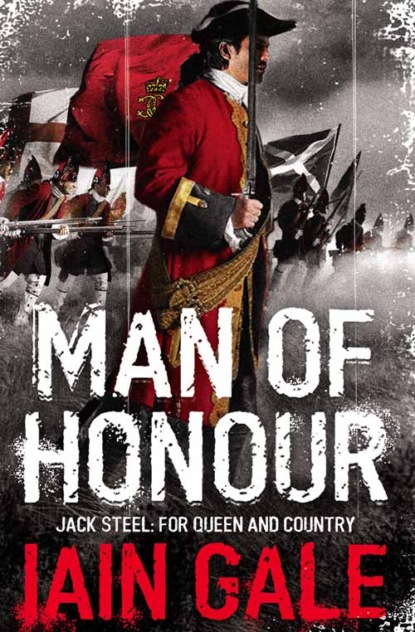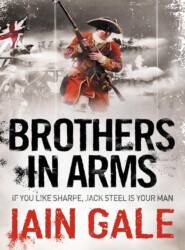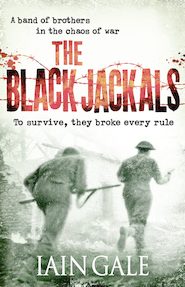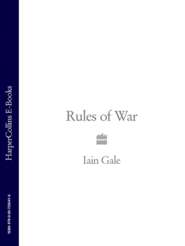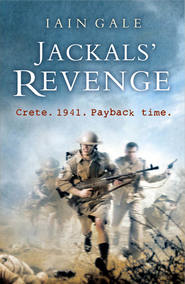По всем вопросам обращайтесь на: info@litportal.ru
(©) 2003-2024.
✖
Jack Steel Adventure Series Books 1-3: Man of Honour, Rules of War, Brothers in Arms
Автор
Год написания книги
2018
Настройки чтения
Размер шрифта
Высота строк
Поля
‘I’m told you have a particular penchant for duelling, eh?’
‘Not really, Sir.’
‘Real or not, I won’t have it in the army if I can help it. Kills off my best officers before they have sight of the French. Waste of good men, Steel. Take my advice. Give it up.’ He turned back to the map.
‘What think you of the campaign thus far?’
‘Donauwörth was a great victory, Sir.’
Marlborough looked up and raised his eyebrows. ‘Indeed it was, Steel. But tell me. Was it enough? You know that my enemies decry the casualties. What though does the army feel?’
‘It is war, Sir. Men are killed in any battle. The fact is that we took the position and drove off the enemy. It was a glorious day, Sir.’
‘It is war, Steel. But this is a new war. Tomorrow we advance on the town of Rain. We shall besiege it and we shall take it, cannon or not. But you, Mister Steel, you will not be coming with us. You have your own orders and two days to prepare for your journey. Be swift and be sure, Steel. For if you are not, then we are all ruined.’
Aubrey Jennings sat in his tent writing up the company reports. It was the most tedious part of his job and normally he would have paid a junior officer to do the task. This evening though there was a general amnesty for all lieutenants and they had leave to visit the local village. So here he sat doing the job of a quartermaster, numbering off rations and issues of clothing, equipment, ammunition, and rum. Besides, he thought, it did allow him the opportunity for a little creative accounting. Who, after all, would know that the actual number of pairs of shoes delivered was 300 and not the 600 for which he had indented? The additional money would go straight into his pocket. Not bad for an evening’s work, tiresome as it was. Jennings sat back in his chair, closed his eyes and sighed.
‘God, Charles. I can’t abide paperwork. We should have clerks to do such things. Never would have happened in the old army. You know I can’t help thinking that we may have our priorities wrong. What need have the men for new shoes when there are hundreds of perfectly serviceable pairs being discarded? The men never needed regular supplies of new shoes before. Why now? What does Marlborough suppose it will buy him? Popularity? Of course he’s right. But he doesn’t have to sit here and write up the damned papers for the bloody things. I tell you, it’s typical of the way this army is going. I don’t like it, Charles. It’s not what soldiering’s about. Reforms yes, of course we need reforms. But not like this. Not reforms for new shoes. We need reforms for new men. New officers and a new code of fighting. I’m not liked you know, in Whitehall. I’ve been passed over. I should have command of a battalion.’
Charles Frampton spoke from a corner of the tent, without looking up from his book. ‘You could always raise your own regiment, Aubrey.’
‘D’you suppose I’m made of money, Charles. Don’t be ridiculous. Waste my own money on clothing and feeding 600 men. No. I intend to rise by merit and persuasion. It is my right.’
There was a cough from outside the tent. Jennings looked up and then back down again at the ledger and took up his pen. ‘Come.’
Stringer entered, leering.
‘Yes. What is it Sarn’t?’
‘Have to report, Sir. Men are a bit low, Sir.’
Jennings looked up at the grinning Sergeant and put down his pen.
‘Perhaps I had better go and raise their spirits. D’you think?’
‘No, I wouldn’t do that. No, Sir. Not if I was you, Sir. See, it’s the effect of the flogging, Sir. Never very happy after a flogging the men aren’t. There’s talk as you should have had ’im cut down after fifty, Sir.’
‘Oh there is, is there? Well Sarn’t, see if tomorrow you can’t listen a little closer as to where that talk is coming from and then we’ll see if whatever big-mouthed miscreant is the author of that treason doesn’t get a hundred lashes or more of his own for his trouble.’
Stringer grinned his toothless smile.
‘Very good, Sir. I’ll get about it now, Sir.’
Turning, he made to leave the tent, but before he could do so an officer entered, his red coat marked out by the distinctive green facings and grey waistcoat of Wood’s Regiment of Horse. Jennings knew him as a casual acquaintance. Thomas Stapleton, a Major of no little repute, testimony to which was born out by the white scar which ran the length of his right cheek. Jennings knew him too from London.
He suspected that Stapleton, with his obvious allegiances, must be as disenchanted with the motives and ambitions of their great commander as he was himself. Wondering what business Stapleton might now have with him, he rose from the table to greet him.
‘Major Stapleton. How very pleasant to see you again. To what do we owe your presence? A drop of claret perhaps. Charles.’
Frampton poured a glass and brought it across to them.
‘Thank you, Major Jennings. That would be most agreeable.’
Stapleton had been blessed from birth with a speech impediment, pronouncing all his ‘r’s as if they were ‘w’s. It had the effect of making his already high-pitched voice still more comical. But there was nothing amusing in the expression he wore as he accepted the proferred goblet of wine from Frampton. He took a sip and got to the matter in hand.
‘May I speak plainly?’
‘Major Stapleton. You may rest assured that you are among friends here. You know Captain Frampton?’
Major Stapleton nodded and then frowned: ‘Indeed. Nevertheless, Major Jennings.’
He raised his eyes towards Frampton. ‘If you would be so kind.’
Jennings turned to Frampton. ‘Charles. I’m afraid that I must ask you to leave us, briefly.’
Frampton walked slowly across to the entrance and Jennings, realizing that Stringer was still standing by the entrance to the tent, motioned for the Sergeant, too, to leave. Once both men had gone, Stapleton began:
‘Major Jennings. You will have heard, no doubt, that a wagon train was lately ambushed near Ingolstadt by a party of Bavarian cavalry.’
‘It is common knowledge, Major. Yes. But it was I believe of little consequence. It contained personal possessions mostly. No ammunition. No supplies.’
‘Quite true. Personal possessions certainly. A quantity of silverware and plate, fresh uniforms for the general officers. In fact the majority of it was the personal property of the Commander-in-Chief. What you were perhaps unaware of however, was that within those wagons was a chest of highly personal documents and correspondence belonging to His Grace the Duke of Marlborough.’
Jennings grinned. ‘How personal, exactly?’
‘The chest contained certain papers. Letters from his wife and so on.’
‘How very droll. Go on.’
‘The point is, Major, that finding no supplies of any military value, the Bavarian Colonel who captured the train sold on its contents to one of his countrymen, a merchant.
‘You will not be surprised I hazard if I tell you that said merchant, an inquisitive, inventive sort of chap, having glimpsed in one of the letters what seemed to him familiar armorial bearings, spent many hours perusing the papers.’
He took a long draught of wine.
‘Within a letter from the Duke to his wife, the man found concealed a very different piece of correspondence. A letter to Marlborough from the court of the exiled King James at St Germain. A letter thanking our General in the most friendly terms, for his concerns as to the Stuart pretender’s state of health and also for his enduring loyalty.’
Jennings was staring now. Smiling.
‘You begin to understand what this might imply?’
‘Perfectly. Do continue.’
‘Naturally, our Bavarian merchant, being a man with an eye for self-advancement, thought to return the letter to its owner – at a price – and therefore some days ago sent an emissary into our camp. In short he has arranged to sell it back to Marlborough for 500 crowns. And this, Major, is where I come in. Or rather, where you come in. I am informed that you and I are of the same political persuasion.’
‘I am a Tory, if that is what you mean. And a true patriot.’
‘Indeed. And being of that persuasion I venture that you would be as keen as I to see my Lord Marlborough replaced as commander-in-chief of this army?’





